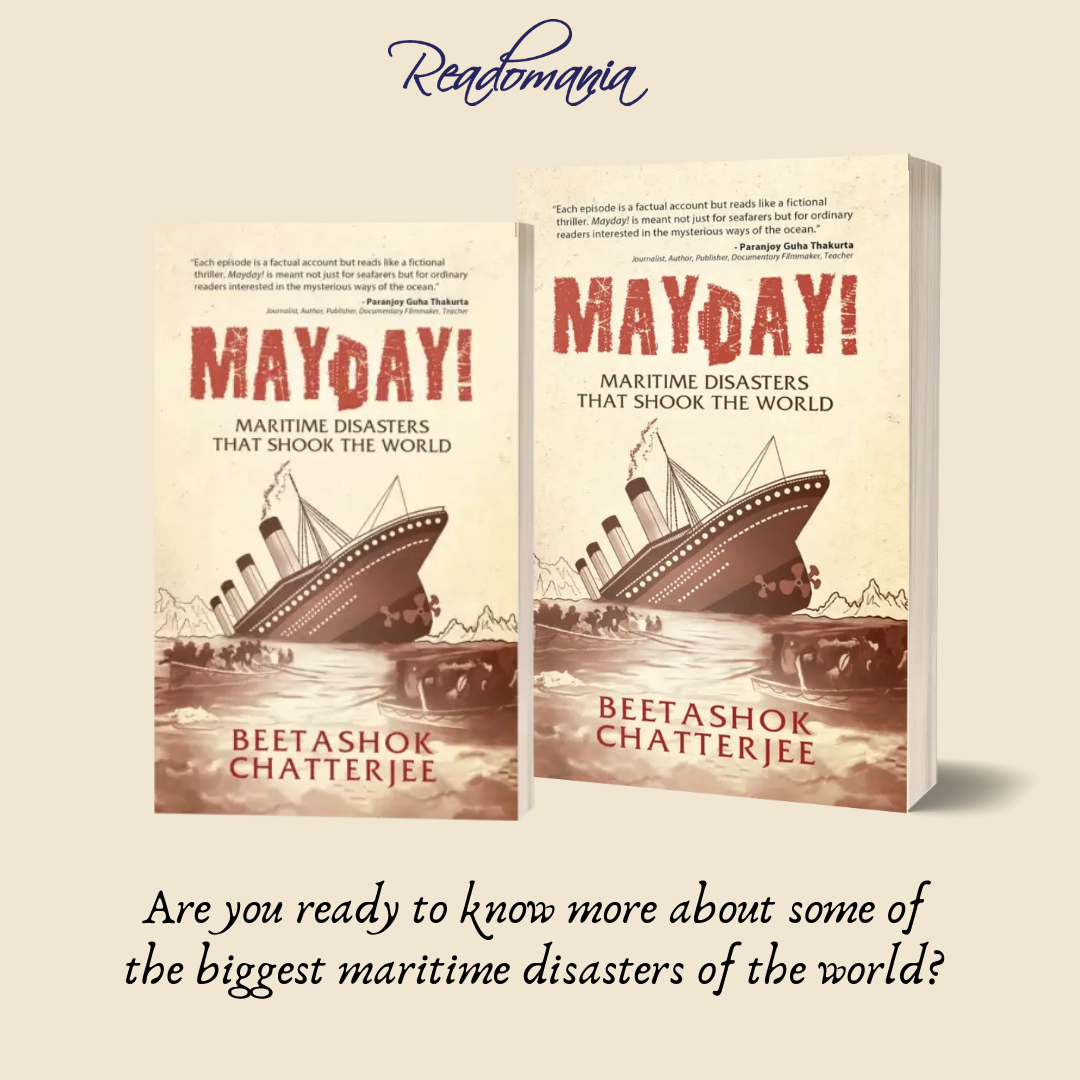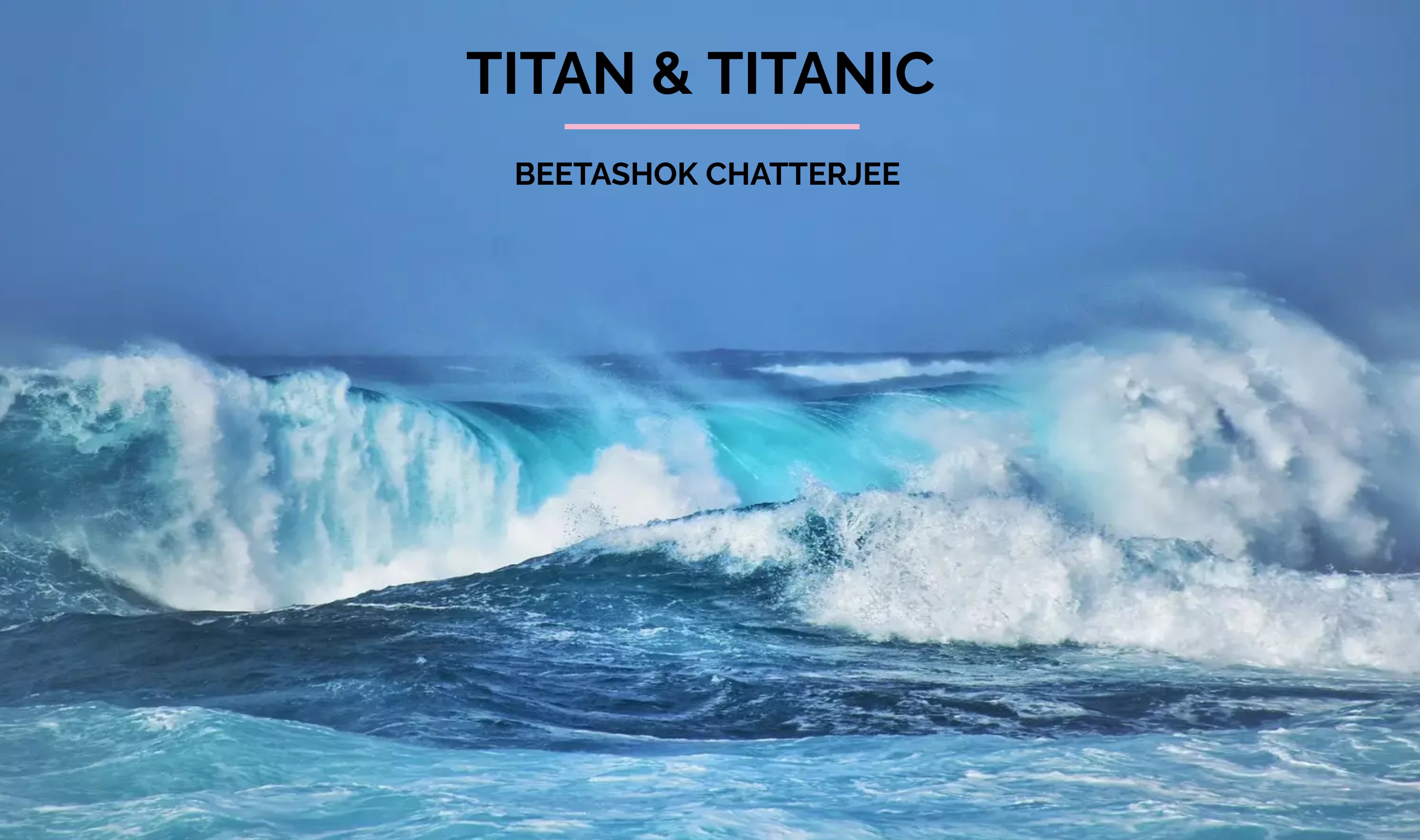On 18 June 2023 the Titan, a submersible owned by OceanGate Inc., went down into the murky depths of the North Atlantic on a tourist expedition with five passengers dying to (pun not intended) see the wreck of the legendary ocean liner Titanic, which since 1912 lies on the ocean bed off Newfoundland, Canada. It is a journey of almost 4 km below the sea surface.

Source: https://www.rollingstone.com/
Titan did not return. When it failed to resurface on schedule, the authorities were alerted. An international search and rescue team, comprising of both Coast Guards of the U.S. and Canada, searched for the submersible for four days before its debris was found on the ocean floor 1,600 ft from the wreck of the Titanic. Experts concluded that it had imploded during its descent, crushed like a soda can. The deaths of the five high profile tourists is believed to have been instantaneous, mercifully.
Five souls, captivated by the Titanic legend, now rest in the same waters.
One cannot help but compare the two wrecks—the Titan and the Titanic—now lying together at the bottom of the sea not far from each other. The similarities between the two tragedies are quite obvious to me. On Titanic, the captain, despite being aware of the icebergs that lay ahead, continued to steam at full sea speed on a moonless night, causing 1,500 deaths. Navigation warnings of icebergs ahead remained unheeded. Capt. Smith was sure that an iceberg could be seen well in time and avoided. Even if the ship hit an iceberg, both he and the ship’s architects believed that they had an unsinkable ship that could not be defeated by Nature. Well, we all know what happened. Negligence, hubris and overconfidence were the chief causes that led to the disaster. A design flaw that caused the compartments to flood one after another was another factor, but that can indirectly be connected to hubris and overconfidence, can it not?
What of the Titan? OceanGate CEO Stockton Rush, who was one of the ill fated five passengers, had designed this submersible. Rush saw himself as a maverick who wanted to be remembered as an innovator, and for the rules he broke. He built a sub with two dissimilar materials—titanium hemispheres and a carbon fibre cylinder in the middle. This was an experimental design. Deep sea exploration industry experts believe that submersibles should be built of one contiguous material—steel or titanium. Apart from this, a Logitech wireless game controller was used to steer the Titan. For such an expensive pressure vessel charging passengers USD250,000 per head, a PlayStation type of controller? Sounds weird to me.
A former OceanGate employee had warned the company in 2018 that flaws in the carbon fibre could grow with each dive under high water pressure, risking lives. This is exactly what must have happened. The Titan had made successful voyages earlier, but was not so lucky this time.
Source: https://www.ctvnews.ca/
Deep sea exploration is nothing new. Oceanographers, geologists and tourists do it all the time. But the Titanic site per se is a hostile place. It is basically a huge mass of twisted metal with lots of overhanging metallic structures. A sub coming too close can easily get entangled on one of these arms. A two sub system in such hazardous locations makes sense. One sub is a backup to manage the problem in case one arises. The Titan had no backup. This submersible was not certified as seaworthy by any regulatory agency. All passengers going on board had to sign a waiver confirming their knowledge of this fact.
Well, we sadly know now what happened. An experimental design, reckless adventurers willing to pay a king’s ransom and sign a waiver and no backup system in place. Negligence, hubris and overconfidence…sound familiar? And, of course, a design flaw which smacks of the same human qualities.
My book Mayday! is about 13 major maritime disasters that shook the world. Either in terms of lives lost, or the environmental damage they caused, or the media attention they garnered. Titanic is, of course, one of them. Throughout most of these incidents, one common thread runs—that of human error. So many lives lost, so much damage done that could have been prevented…but for the human follies of negligence, hubris and overconfidence.



Comments